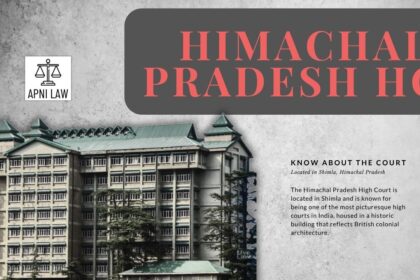Introduction
The Madras High Court delivered a judgment on 10 September 2024 in Mohammed Saifullah vs. Reserve Bank of India & Others. The Court addressed that investigating authorities cannot freeze an entire bank account in financial fraud cases without specifying the portion of money suspected to be related to the crime.
Facts of the Case
Mohammed Saifullah held an account in HDFC Bank. Authorities suspected that ₹2,48,835 from his account related to fraud involving cryptocurrency. His total account balance was ₹9,69,580. The Cyber Crime Bureau of Telangana and the National Cyber Crime Reporting Portal directed the bank to freeze his entire balance. Saifullah filed a writ petition since neither the police nor the bank told him the reasons for freezing or the duration of the freeze. He argued that freezing the whole account caused him hardship since the untainted portion was also blocked.
What the Court Says
Justice G. Jayachandran held that the investigating agency does not have the right to freeze the whole account when only a part of it is under suspicion. The Court said authorities must quantify the amount believed to be involved in the fraud before freezing can apply. Such order must clearly state which portion is frozen and for how long. Without that quantification, freezing violates fundamental rights like the right to trade, business, and livelihood under the Constitution.
The Court ordered HDFC Bank to de-freeze Saifullah’s account except for a lien of ₹2,50,000. This lien nearly matched the suspected amount. The balance could now be used by him.
The Court further emphasized that account-holders must be immediately informed when their accounts are frozen. The authority issuing the freeze must explain the purpose and duration of the freeze. Only when these prerequisites are met can the power to freeze be exercised lawfully.
Implication
This judgment sets an important standard. It limits investigating authorities who might otherwise freeze entire bank accounts without clear grounds. Account-holders now have stronger protection: only the suspect portion can be frozen, and authorities must be transparent.
It also means business owners and individuals will find relief from arbitrary freezing orders that disrupt daily operations. The ruling could influence how similar cases are handled across India, possibly prompting other High Courts to follow the same guidelines.
Overall, the decision strengthens the rule of law by balancing investigative powers with citizens’ constitutional rights.
Conclusion
In Mohammed Saifullah v. RBI & Ors., the Madras High Court clarified that freezing the entire account without quantifying the amount involved in alleged fraud violates fundamental rights. Courts must ensure statutory power is used responsibly. The judgement protects livelihood, trade, and fairness, while still allowing investigations to proceed against the portion genuinely under suspicion.







